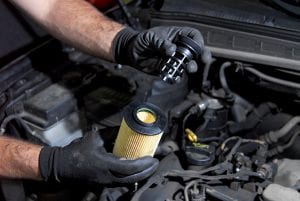Goods in transit refer to the products that are in the process of being transported from one location to another but have not reached their final destination yet. This is typically the process of goods being transported from the seller to the customer and can include air, sea, rail, or road transport.
During this time, the ownership of the product still remains with the seller so tracking and insurance are a large part of the operation. Goods in transit can be tracked through a number of methods including barcodes, GPS, and other location technologies. This tracking not only ensures goods are delivered safely and on time but also keeps the buyer and seller informed throughout the journey about the status of the shipment.
What are goods in transit insurance?
This form of insurance, also known as transportation insurance, is a type of cover that provides protection for cases of loss, damage, or theft during the transport process. This insurance shields goods that are in transit no matter if it’s by air or lorry.
Goods in transit insurance are typically purchased through the business that transports goods as part of its operations. This insurance can cover a range of aspects including the overall cost as well as shipping fees, taxes, and duties. The coverage supplied can vary depending on the specific policy a business is after but typically includes protection against the risk of fire, theft, and damage caused by accidents or natural disasters.

Who owns goods in transit?
Ownership of goods in transit hinges on the terms of sale, this includes FOB destination and FOB selling point. In the case of FOB destination, the seller is the owner of the goods in transit and is, therefore, responsible for the shipment and get it to the final customer. But under the FOB selling point, the buyer is the owner of the in-transit inventory, making them liable for the shipment and everything that comes with t.
FOB destination: the sale takes place after the goods have been delivered to the buyer’s destination and therefore, the title remains with the seller. That means ownership of the goods in transit also sits with the seller. Until the goods arrive at their destination, a sale or a purchase is not recorded which emphasises the importance of tracking and data.
Under FOB shipping point: the sale takes place when the goods reach the shipping point and therefore, the title is passed onto the buyer before the goods are shipped. This means the buyer gets ownership of the goods in transit. The seller can record this as a sale, while the buyer records it as a purchase.

Why do you need in-transit insurance?
Businesses should have in-transit insurance for several reasons to benefit both them and their customer. First, the transportation of goods can involve a lot of risk, potential accidents, theft, or dangers of significant financial loss especially during long-distance drives. In-transit insurance provides a way for businesses to reduce these risks and protect the process. Many contracts require businesses to have this form of insurance, and failure to do so can result in a violation of the contract and financial liabilities.
Goods in transit can also provide support in aspects such as:
- Customer satisfaction
- Better customer service
- Efficient working
- Quicker response times in terms of replacements and exchanges
- Organised data and records
Automotive filtrations for businesses and customers across the UK
Whether you’re a business owner who owns a range of industrial vehicles or just a commuter looking to replace your car filter, Filter Services is the place to go. We supply and stock a variety of different automotive filtrations across the UK, teaming up with some of the biggest names for quality business. From air filters and cabin filters to new car batteries, we know exactly what your vehicle will need to get back on the road, used for a number of different vehicle types and industries including construction, car filters, lorries, agriculture, tractors, energy, mining and more.
